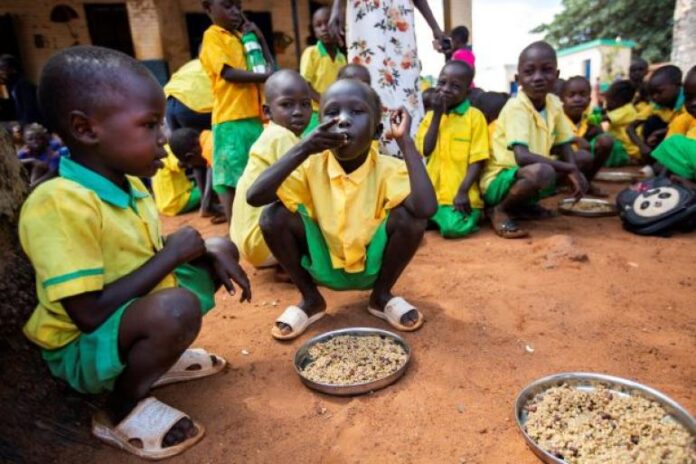The child protection and food security practitioners in South Sudan has said 3.1 million children are food insecure in the country.
The report indicated that children, who make up 40 percent of the population, are at the risk of resorting to various negative coping mechanisms to meet their food needs.
The negative coping mechanisms include child marriage, hazardous child labour, family separation, and recruitment by armed forces and armed groups.
The First Secretary for Political Affairs at the German Embassy, Leon Kohl urges donours, the government, and humanitarian community to ensure that food security crisis does not threaten the lives of children
He said, “Food security is essential for children’s development. It makes the difference between helping them thrive in the future or pushing them towards harmful coping mechanisms to survive.”
The Deputy Representative of UNICEF South Sudan Child Protection officer, Obia Achieng said, “Children deserve to grow up in a healthy and safe environment where they can focus on their education as children instead of having to worry about what they will eat next.”
“It is imperative to highlight that the multiple crises in South Sudan are a child protection crisis, conflict, economic, climate-induced shocks and displacement and particularly food insecurity increase the risk and vulnerability for sexual and gender-based violence, child marriage, abductions, and mental health issues,” Achieng added.
The Director General for Food Security at the South Sudan Ministry of Agriculture, Jacob Mogga encourages collaboration of stakeholders to continue supporting the communities.
Mogga stated that many of the projects were channelled directly to the relevant institutions as a result, there was no tangible outcome of the support.
According to him, 4% of the Arable land in South Sudan is being utilized for farming due to conflict that occurred in 2013 and 2016.
He said, if these issues are addressed well, South Sudanese will be able to feed themselves and also produce surplus.
The humanitarian community, donors, and government gathered in Juba this week to address the grave effects of South Sudan’s hunger crisis on children’s protection.

